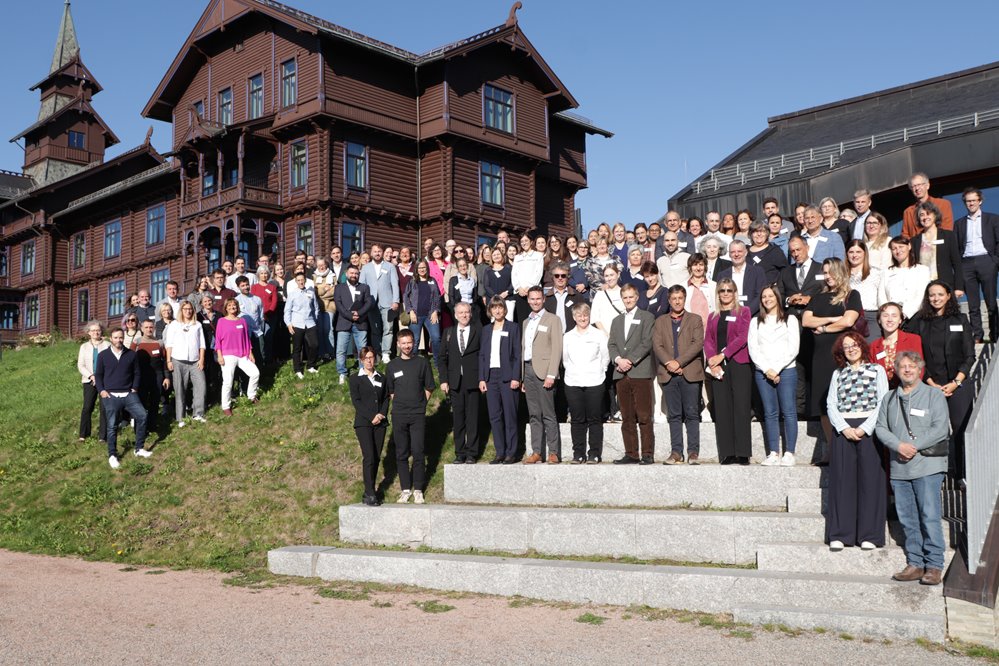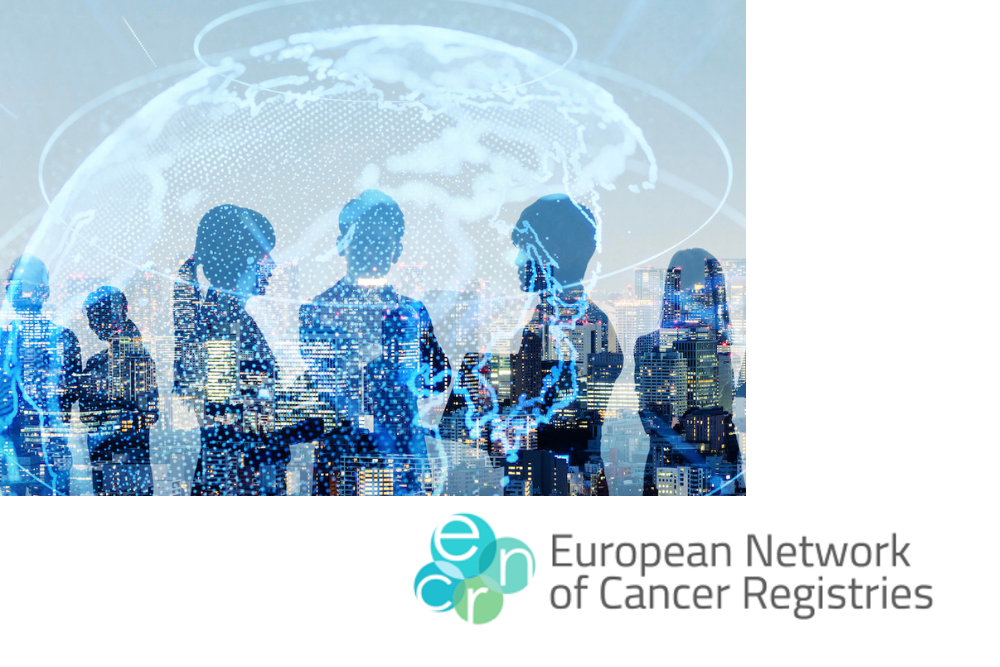23 oktober 2025
 The largest global analysis of care for women with breast, cervical and ovarian cancer shows substantial differences in stage at diagnosis, treatment and adherence to international guidelines. The study, published today in The Lancet, includes data from more than 275,000 women from cancer registries in 39 countries between 2015 and 2018. The Netherlands Comprehensive Cancer Organisation (IKNL) contributed data from the Netherlands Cancer Registry (NCR) and is co-author of the publication.
Read more
The largest global analysis of care for women with breast, cervical and ovarian cancer shows substantial differences in stage at diagnosis, treatment and adherence to international guidelines. The study, published today in The Lancet, includes data from more than 275,000 women from cancer registries in 39 countries between 2015 and 2018. The Netherlands Comprehensive Cancer Organisation (IKNL) contributed data from the Netherlands Cancer Registry (NCR) and is co-author of the publication.
Read more
Worldwide differences in care for female-specific cancers
 The largest global analysis of care for women with breast, cervical and ovarian cancer shows substantial differences in stage at diagnosis, treatment and adherence to international guidelines. The study, published today in The Lancet, includes data from more than 275,000 women from cancer registries in 39 countries between 2015 and 2018. The Netherlands Comprehensive Cancer Organisation (IKNL) contributed data from the Netherlands Cancer Registry (NCR) and is co-author of the publication.
Read more
The largest global analysis of care for women with breast, cervical and ovarian cancer shows substantial differences in stage at diagnosis, treatment and adherence to international guidelines. The study, published today in The Lancet, includes data from more than 275,000 women from cancer registries in 39 countries between 2015 and 2018. The Netherlands Comprehensive Cancer Organisation (IKNL) contributed data from the Netherlands Cancer Registry (NCR) and is co-author of the publication.
Read more
23 september 2025
 With a kick-off in Oslo, today marks the start of CancerWatch, a new EU Joint Action that will transform how Europe collects, harmonizes, and uses cancer data. Coordinated by the Norwegian Institute of Public Health and involving 92 partner organisations from 29 countries, CancerWatch will enhance the quality, comparability, and timeliness of data from population-based cancer registries (PBCRs) across Europe.
Read more
With a kick-off in Oslo, today marks the start of CancerWatch, a new EU Joint Action that will transform how Europe collects, harmonizes, and uses cancer data. Coordinated by the Norwegian Institute of Public Health and involving 92 partner organisations from 29 countries, CancerWatch will enhance the quality, comparability, and timeliness of data from population-based cancer registries (PBCRs) across Europe.
Read more
Europe launches CancerWatch
 With a kick-off in Oslo, today marks the start of CancerWatch, a new EU Joint Action that will transform how Europe collects, harmonizes, and uses cancer data. Coordinated by the Norwegian Institute of Public Health and involving 92 partner organisations from 29 countries, CancerWatch will enhance the quality, comparability, and timeliness of data from population-based cancer registries (PBCRs) across Europe.
Read more
With a kick-off in Oslo, today marks the start of CancerWatch, a new EU Joint Action that will transform how Europe collects, harmonizes, and uses cancer data. Coordinated by the Norwegian Institute of Public Health and involving 92 partner organisations from 29 countries, CancerWatch will enhance the quality, comparability, and timeliness of data from population-based cancer registries (PBCRs) across Europe.
Read more
23 juni 2025
 Healthcare is under pressure. People are living longer, but more often with chronic conditions and cancer. At the same time, workforce shortages are increasing, and workloads are rising. In this context, it is crucial to better utilize health data to ensure accessibility, quality, and affordability of care. Not just by making data available, but above all by making it 'fit for purpose'. IKNL plays a key role in this effort.
Read more
Healthcare is under pressure. People are living longer, but more often with chronic conditions and cancer. At the same time, workforce shortages are increasing, and workloads are rising. In this context, it is crucial to better utilize health data to ensure accessibility, quality, and affordability of care. Not just by making data available, but above all by making it 'fit for purpose'. IKNL plays a key role in this effort.
Read more
IKNL & EHDS: working together towards future-proof oncological care
 Healthcare is under pressure. People are living longer, but more often with chronic conditions and cancer. At the same time, workforce shortages are increasing, and workloads are rising. In this context, it is crucial to better utilize health data to ensure accessibility, quality, and affordability of care. Not just by making data available, but above all by making it 'fit for purpose'. IKNL plays a key role in this effort.
Read more
Healthcare is under pressure. People are living longer, but more often with chronic conditions and cancer. At the same time, workforce shortages are increasing, and workloads are rising. In this context, it is crucial to better utilize health data to ensure accessibility, quality, and affordability of care. Not just by making data available, but above all by making it 'fit for purpose'. IKNL plays a key role in this effort.
Read more
8 mei 2025

OECD Cancer Profiles 2025: Where does the Netherlands stand in Europe?

How is the Netherlands performing in the fight against cancer? The European Cancer Country Profiles 2025, recently published by the OECD and the European Union, provide a detailed overview of how European countries are doing on cancer control — from incidence and mortality rates to prevention, screening, and healthcare spending.
Read more
1 mei 2025
 Cancer is deeply personal. It is a reality that touches families, friends, and communities across Europe. And yet, to understand and combat cancer effectively, we must also take a broader view — one that looks at populations and recognizes patterns, disparities, and progress.
Cancer is deeply personal. It is a reality that touches families, friends, and communities across Europe. And yet, to understand and combat cancer effectively, we must also take a broader view — one that looks at populations and recognizes patterns, disparities, and progress.
Read more
The Backbone of Cancer Control: European Cancer Registries
 Cancer is deeply personal. It is a reality that touches families, friends, and communities across Europe. And yet, to understand and combat cancer effectively, we must also take a broader view — one that looks at populations and recognizes patterns, disparities, and progress.
Cancer is deeply personal. It is a reality that touches families, friends, and communities across Europe. And yet, to understand and combat cancer effectively, we must also take a broader view — one that looks at populations and recognizes patterns, disparities, and progress. Read more
14 april 2025
 The European Cancer Information System (ECIS) has been revamped and updated with the latest cancer burden indicators, derived from population-based cancer registry data across Europe. Managed by the European Commission’s Joint Research Centre (JRC), the update was made possible thanks to the contributions of more than 125 cancer registries in 32 countries – including IKNL in the Netherlands.
Read more
The European Cancer Information System (ECIS) has been revamped and updated with the latest cancer burden indicators, derived from population-based cancer registry data across Europe. Managed by the European Commission’s Joint Research Centre (JRC), the update was made possible thanks to the contributions of more than 125 cancer registries in 32 countries – including IKNL in the Netherlands.
Read more
Updated European Cancer Information System provides essential insights for cancer policy and research
 The European Cancer Information System (ECIS) has been revamped and updated with the latest cancer burden indicators, derived from population-based cancer registry data across Europe. Managed by the European Commission’s Joint Research Centre (JRC), the update was made possible thanks to the contributions of more than 125 cancer registries in 32 countries – including IKNL in the Netherlands.
Read more
The European Cancer Information System (ECIS) has been revamped and updated with the latest cancer burden indicators, derived from population-based cancer registry data across Europe. Managed by the European Commission’s Joint Research Centre (JRC), the update was made possible thanks to the contributions of more than 125 cancer registries in 32 countries – including IKNL in the Netherlands.
Read more
9 april 2025

IKNL launches renewed international website

IKNL (Netherlands Comprehensive Cancer Organisation) has launched its renewed international website: iknl.org. The website is designed to better inform international partners, researchers and policymakers about IKNL’s work, the Netherlands Cancer Registry (NCR), and scientific collaborations in the field of cancer.
Read more
24 maart 2025
 Young women diagnosed with cervical cancer are often found to be unvaccinated against HPV. This is the outcome of the first Dutch study on HPV vaccination among women under 30 with cervical cancer. Only 15% of the women in the study had been vaccinated, while in the general population of women in that age group, at least 55% had received the vaccine*. It is now well established that the vaccine offers protection against this type of cancer.
Young women diagnosed with cervical cancer are often found to be unvaccinated against HPV. This is the outcome of the first Dutch study on HPV vaccination among women under 30 with cervical cancer. Only 15% of the women in the study had been vaccinated, while in the general population of women in that age group, at least 55% had received the vaccine*. It is now well established that the vaccine offers protection against this type of cancer.
The findings of the study, based on data from the Netherlands Cancer Registry of IKNL, were presented on International HPV Awareness Day, the 4th of March 2025. The research was initiated by gynecologists from Amsterdam UMC, who are concerned about the large number of people choosing not to get the HPV vaccine.
Read more
Dutch research confirms: young women with cervical cancer often not HPV-vaccinated
 Young women diagnosed with cervical cancer are often found to be unvaccinated against HPV. This is the outcome of the first Dutch study on HPV vaccination among women under 30 with cervical cancer. Only 15% of the women in the study had been vaccinated, while in the general population of women in that age group, at least 55% had received the vaccine*. It is now well established that the vaccine offers protection against this type of cancer.
Young women diagnosed with cervical cancer are often found to be unvaccinated against HPV. This is the outcome of the first Dutch study on HPV vaccination among women under 30 with cervical cancer. Only 15% of the women in the study had been vaccinated, while in the general population of women in that age group, at least 55% had received the vaccine*. It is now well established that the vaccine offers protection against this type of cancer.The findings of the study, based on data from the Netherlands Cancer Registry of IKNL, were presented on International HPV Awareness Day, the 4th of March 2025. The research was initiated by gynecologists from Amsterdam UMC, who are concerned about the large number of people choosing not to get the HPV vaccine.
Read more